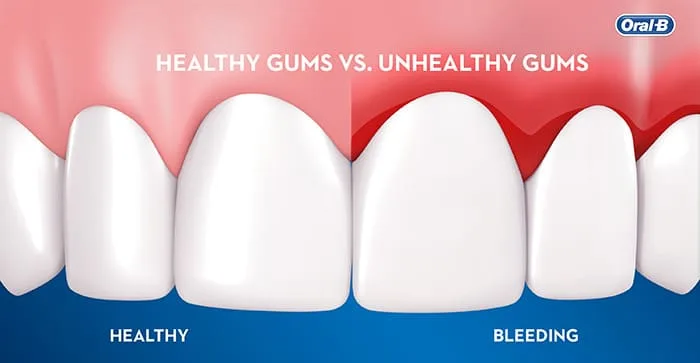
Bleeding Gums: Causes, Symptoms, and Treatments

This blog has been reviewed and approved by Dr. Monika Negi, a qualified Oral and Maxillofacial Pathologist with 5+ years of experience.
Table of Contents
Key Takeaways
- Bleeding gums can be caused by several different factors, including trauma to your gums, aggressive brushing and flossing, long-term plaque and tartar buildup, gum disease, hormonal changes, health conditions, certain medications (e.g., blood thinners), and vitamin deficiencies.
- Bleeding gums are usually accompanied by other symptoms, such as bad breath, loose teeth, receding gums, bleeding when you brush or floss, and red, swollen, or tender gums.
- To treat bleeding gums, your dentist may recommend scaling, root planing, a root canal, or even removing an infected tooth.
- Bleeding gums can be prevented by maintaining a good oral hygiene routine, visiting the dentist for a cleaning as recommended, eating a healthy diet, and avoiding tobacco use.